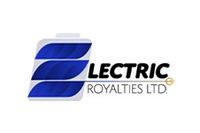Umicore is Europe’s largest producer of battery materials for the electric vehicle industry and Glencore is a top producer of cobalt.
Top cobalt producer Glencore (LSE:GLEN,OTC Pink:GLCNF) announced Wednesday (May 29) that it has entered into a long-term deal to supply the metal to Umicore (OTC Pink:UMICF,EBR:UMI).
Belgium-based Umicore is Europe’s largest producer of battery materials for the electric vehicle (EV) industry, and the cobalt it will receive from Glencore will be run through its refineries across the globe.
The cobalt will come from Glencore’s Kamoto Copper Company (KCC) and Mutanda operations, both located in the Democratic Republic of Congo (DRC).
The DRC is the world’s largest producer of cobalt by far, putting out 90,000 metric tons of the metal in 2018. That’s well ahead of second place Russia, which produced just 5,900 metric tons during the period.
Despite its prominent position, cobalt production in the DRC has been linked to child labor and other human rights abuses. In Tuesday’s release, Glencore emphasizes that KCC and Mutanda have been assessed by Umicore and meet the company’s procurement standards, which exclude artisanally mined cobalt as well as cobalt mined using child labor.
Interest in cobalt has been on the rise as countries around the world increasingly push for more EVs on the roads. Cobalt is a key material in the lithium-ion batteries used to power these vehicles.
“We are pleased to enter into this long-term partnership with Umicore in the fast growing electric vehicle market which further endorses Glencore’s important role in supplying the materials that enable the energy and mobility transition,” said Nico Paraskevas, Glencore’s head of copper and cobalt marketing.
Aside from Tuesday’s announcement, both Glencore and Umicore have made headlines recently for other cobalt-related developments.
Umicore revealed plans last week to acquire the Finland-based Kokkola cobalt refining and cathode precursor operations from a subsidiary of Freeport-McMoRan (NYSE:FCX) for US$150 million.
Commenting after the news hit, Benchmark Mineral Intelligence called Umicore’s move “yet another example of vertical integration in the lithium-ion battery supply chain.”
According to the firm, the development further suggests that cobalt will keep playing an important role in EV batteries, despite concerns that it could be phased out or removed entirely.
Also last week, Glencore agreed to support the restart of First Cobalt‘s (TSXV:FCC,OTCQX:FTSSF) refinery in Ontario. Under a memorandum of understanding, the company will provide feedstock to the refinery, and will look into providing First Cobalt with a loan to finance the restart.
First Cobalt has since released a scoping study for the restart, suggesting that it could produce more than 5,000 tonnes of cobalt per year, up from the 2,000 to 2,500 tonnes previously predicted.
The company has said that the refinery could be up and running in 18 to 24 months, but a final decision on the restart has not been made, and First Cobalt is still working with a team of experts to put together a business plan for the project.
As optimism surrounding the EV narrative progresses, the expectation is that players in the space, especially miners and end users, will continue to lock down supply arrangements.
Don’t forget to follow us @INN_Resource for real-time updates!
Securities Disclosure: I, Charlotte McLeod, hold no direct investment interest in any company mentioned in this article.
Editorial Disclosure: First Cobalt is a client of the Investing News Network. This article is not paid-for content.

